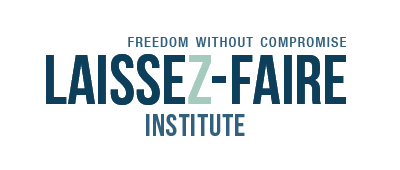Should your health insurance reimburse your prescription eyeglasses? This is a topic somehow deemed of national concern, currently discussed at the Swiss parliament level.
The Swiss State therefore gets involved in reducing health care costs. For instance, we have a Federal Office for Sports. In a 2008 interview, the director of the Federal Office for Sports expressed concern about parents not getting their kids to do enough sports. He considered necessary the creation of more state incentives in order “to avoid that more children and young people become a burden on health insurance”.
Other countries have gone even further...
In Japan, since 2010, companies are required by law to measure the waistline of their employees above the age of 40, every year, and to provide mandatory dieting guidelines to those whose waistline exceeds a certain limit. The goal is to have less overweight people and therefore less health care costs.
In 2007, a man and his wife were denied entry into New Zealand on grounds that “they were both overweight and were a potential burden on the health care system”.
We have this whole idea of being “a burden on the health care system” which can be used to justify any level of state coercion and state involvement in our daily lives.
How did we get there?
Over the past century, governments around the world have adopted more and more laws implying that your body doesn’t actually belong to you and that the state ought to take decisions about your health.
At first governments had to use religious arguments, your body belongs to God, the Church decides what God wants and the State enforces it.
The Nazi regime used nationalist arguments, with the mandatory Hitler Youth program having slogans such as “it is your duty to be in good health” and “your body belongs to the Nation”, “you belong to the Fuhrer”. The Nazis used these arguments in the first ever propaganda campaign against smoking tobacco.
Another argument was military. In Switzerland, in 1874, physical education became the first school course whose contents were determined at the federal level, mandatory in order to have young men in good shape for mandatory military service.
But the introduction of mandatory health care insurance gave the State a much better reason for controlling your body, more down-to-earth reason. Basically, you pay for everyone else’s health care, therefore anyone putting their life at risk is in fact hurting your pocketbook. You become less and less responsible for your own actions, and more and more responsible for the actions of others.
Consequences of state intervention
Intolerance replaces tolerance
So instead of having a society of individuals being tolerant of things that don’t affect them, people get rational reasons for being concerned about overweight people, smokers, or any people with risky behaviors, since they’re all a burden on them. The people are then actually asking for the state to intervene and restrict risky behaviors in order to limit what they have to pay.
State intervention in all sorts of areas
And suddenly, dozens of state intrusions into our privacy make sense, and are routinely justified by this line of reasoning:
- restricting immigration of people who could be a burden on the health care system, expelling immigrants who "abuse" health care...
- banning drugs, alcohol, tobacco
- forcing people to do sports
- forcing people not to do sports which are too dangerous
- controlling what we eat
- controlling our sex lives in order to prevent STDs
- Mandatory seat belts and helmets
Rationing, death panels
In Switzerland, State-imposed reduction in the number of hospitals and hospital beds and length of stay.
For the past ten years, we've had a “moratorium” on opening new medical practices. Now there is a shortage of doctors, more waiting time.
Last year, the Swiss highest court decided to put a limit of 100 000 CHF per person and per year on the amount the insurances can be asked to pay for a patient, even if his life is at stake.
Again, other countries have gone further and the problem is much worse:
A 2008 survey of British doctors found out that most doctors consider that “Smokers, heavy drinkers, the obese and the elderly should be barred from receiving some costly operations”.
The French Social Security system is running an over 20 billion euros deficit, and the government is directly deciding to lower the already partial reimbursement of certain medications, for some as low as 30%. Another measure is the government, again, directly deciding to lower the wages of certain health care professionals, which of course will lower the attractiveness of such jobs and lead to rationing.
In the USA, another supposedly free market, all drugs have to be approved by the FDA, a costly process taking years while meanwhile people can be dying of diseases the not-yet-legal drugs could cure. In some cases, the FDA even doesn’t authorize a drug simply because it is too costly, not providing what they call “a sufficient benefit”.
All of this is clearly leading to "death panels":
President Obama has proposed a new body that would enhance Medicare's ability to deny care to the elderly and disabled based on government bureaucrats' arbitrary valuations of those patients' lives. [...]
Britain's National Institute for Health and Clinical Excellence (or "NICE") generally refuses to cover medical treatments that cost more than $35,000 per year of life saved.
(Cato)
Lowering in quality, including less hygiene
In Switzerland, some studies estimate that over 40% of hospitals doctors don’t take time to wash their hands properly. According to a 2003 study, 8% of hospital patients get an infection while at the hospital, causing an estimate of 5000 deaths per year (more than alcohol, incidentally). Hurrying the doctors, lack of responsibility for these infection cases, lack of payment based on quality of treatment are all reasons due to state intervention that cause these kinds of problems. In the UK, some hospitals order staff not to wash sheets but turn them over instead, in order to save money.
Pressure for even more harmful intervention
Swiss health care is not a free market but is being misrepresented as such in order to push for even more State intervention. In theory, we have over 80 health care insurers in competition. In practice, they are organized as a group sharing a common interest and actively lobby the government to further it. Since 1994, it is mandatory to have an insurance, at tightly regulated conditions.
The government defines what the insurances must reimburse and what they don’t have to, with no choice from the insured person. The insurance companies are therefore lobbying the government to reduce that list. Since some of the costs are borne directly by the state, the government also has a direct interest in lowering not to lower total costs, but to lower what they have to pay.
In 2007, a proposal by the left to ban competition and create one single health care insurance financed as a tax on income was rejected by 71,2% of the population. The idea behind this proposal was that competition and advertising are costly and that one provider would be more efficient: basically arguments that can be used to nationalize anything. Yet the annoyance with the ricing prices is such that the left is already launching a new campaign in the same direction.
Currently price range for the basic mandatory insurance go from CHF 350 to CHF 520 per month with the minimum patient participation, for basically the same service. And yet somehow socialists still believe in the idea of “objective costs”, claiming that competition isn’t a necessary force to drive prices down, but that instead, money is wasted on advertising, offices, etc. Their idea is that without competition, for some reason, those prices could get below the 350. Instead, of course, without the possibility to make such comparisons among different providers, costs will go up and there will be no control whatsoever over them.
Conclusion and solutions
- By accepting a relatively innocuous proposal of mandatory health care, a whole array of additional government interventions become justified.
- The current system starts from the premise that we should restrict the influence of money in health care, and ends up having the state decide who lives and who doesn’t, with saving money being a primary concern. In a socialized health care system, even though health care is supposed to be free, poor people are the first that end up not being able to afford the supposedly “free health care”.
-
Only solution is to go back to voluntary and unregulated insurance. Example: dental insurance, not mandatory in Switzerland. Whereas in UK, 2008 report that “More than seven million patients have been unable to see an NHS dentist for almost two years” and there have been reported cases of people pulling out their own teeth because they couldn’t find a dentist willing to take a patient with only the mandatory NHS coverage. This is the kind of scary report you’d expect to be described like “what would happen if dental insurance weren’t mandatory”, and yet it’s exactly the other way around: never heard of such reports about Switzerland. When it’s not state-run, state-regulated and mandatory, what happens?
- people take responsibilities, brush their teeth, etc
- incentive to choose lower-costing treatment, e.g. abroad.
- people don’t get their money sucked into inefficient bureaucracies
- costs get down
- people have much more money at the end of the day they can save and use for their own, freely chosen and efficient health care, either directly or through private competitive insurances.

